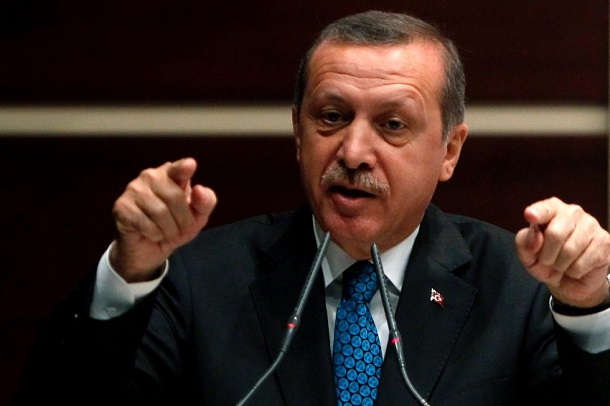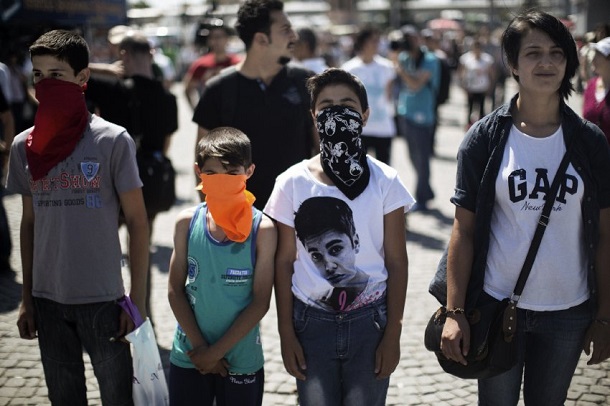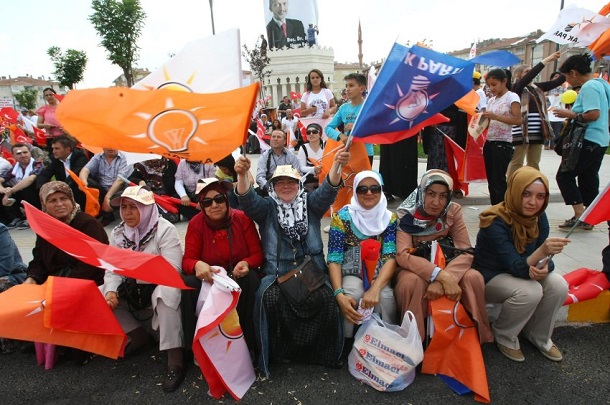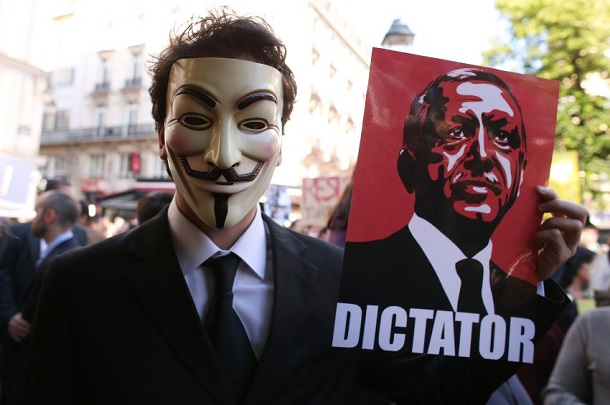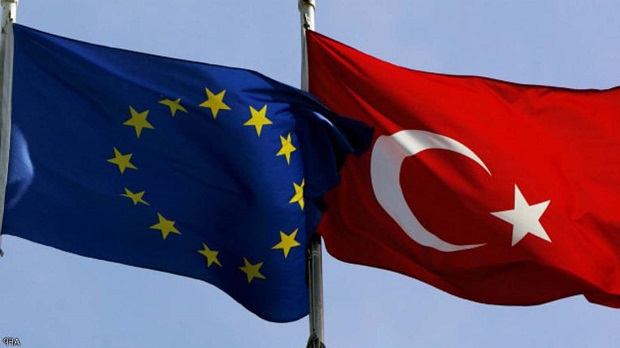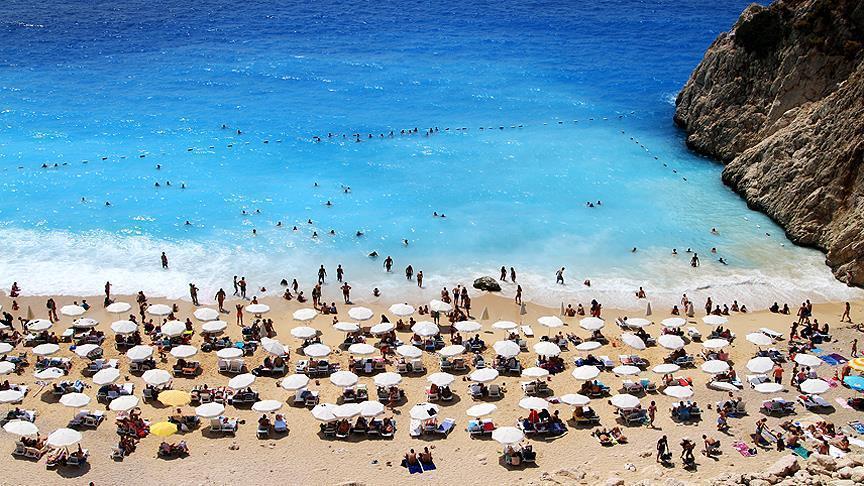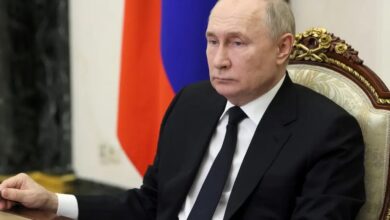Istanbul Park Riot:Turkey a cultural divided country anymore / Breaking News
The revolt against Prime Minister Recep Tayyip Erdogan and AKP clearly shows the deep divide between secular modernity and islamic tradition in Turkey.
The first thing a visitor sees after passing through passport control in Istanbul is a monument to cosmopolitanism, consumption and the pleasures of drinking: a giant display shelf, 25 meters (80 feet) long, containing gin, vodka and whiskey, as well as wines from France, Italy and the US. Sales at the duty-free mall in Istanbul’s Atatürk Airport are among the highest in Europe.
This would have pleased the man for whom the airport was named. Mustafa Kemal Pasha, known as Atatürk, the founder of modern Turkey, liked to drink Raki, the Turkish anise-flavored brandy, even on Muslim holidays.
Turkey’s current prime minister, Recep Tayyip Erdogan, believes drinking alcohol is a sin. Even as mayor of Istanbul, he bullied bar owners and banned the serving of alcohol on government-owned property. Four weeks ago, he pushed through a new alcohol law that prohibits both the selling of alcoholic beverages after 10 p.m. and advertising for beer and wine. “The old alcohol law,” he told the parliament, “was passed by two drunkards. Shouldn’t we prefer the law of God instead?” One of the drunkards he was referring to was Atatürk, and the other was apparently Atatürk’s successor, Ismet Inönü.
The Turks don’t have a particular problem with alcoholism. But the seemingly minor change to the country’s alcohol laws touches on a fundamental issue nonetheless. The country’s very identity is at stake — just as it is when it comes to social norms on clothing, beard styles and family planning.
The protests that began four weeks ago over a controversial construction project at Istanbul’s Gezi Park revealed to the astonished leadership in Ankara and a surprised global public how open the identity of modern Turkey remains. It is a country that has always had its sights set firmly on the West, ever since its founding 90 years ago, its accession to NATO more than 60 years ago and its application for admission to the European Union 25 years ago. This country, which has experienced a remarkable economic boom for the last decade, is now confronted with the same question it faced 90 years ago: Who do we want to be? Where does Turkey want to go?
Turkey Riot:Is deepening regional and life-style differences
The recent demonstrations and counter-demonstrations have served to highlight the two fundamental currents that drive Turkish society. There is the progressive, urban, Europe-oriented current on the one hand. And the conservative, rural movement that is deeply influenced by Islam, on the other.
They couldn’t stand it anymore, say Turkish activists, that their prime minister and his fellow Islamists were trying to dictate to them how they should dress, how many children they should have and whether they could engage in public displays of affection. They are tired, say the supporters of Erdogan’s conservative Islamist Justice and Development Party (AKP), of being patronized by a westernized elite and being berated as provincial simpletons.
Both sides claim to be speaking for the majority of Turks. This is possible because Turkey today is a far more complex entity than the backward country of soldiers and farmers that Atatürk encountered beneath the ruins of the defunct Ottoman Empire.
The urbanization of the 20th century and the economic boom of the early 21st century have blurred and even confused traditional divides. During Erdogan’s first term, in which he was supported by an overwhelming pro-European majority, it seemed as if a pluralistic democracy were developing. In 2005, the European Union embarked on accession talks with Turkey.
The altercations of recent weeks seem to belie the confidence of those years. The conflict shows that political differences in Turkey have actually intensified under the cover of the economic boom. The sense of outrage has increased and the divide running through Turkish society has deepened.
There are two social groups: the urban “white Turks” (beyaz türkler), who look down on the rural “black Turks” (kara türkler). Both groups have expanded their influence in the last 10 years. While Turkey’s real per capita income has increased by a factor of one-and-a-half, Turkey has become both more cosmopolitan and more religious, more progressive and more conservative, more urban and more provincial.
Turkey Unrest:Prime Minister Erdogan ignores those that do not like him
This divide is especially evident in Istanbul, a city of 14 million. It is one of the top travel destinations for young people from all over Europe today. Istanbul attracts international DJs, filmmakers and performance artists, and the city’s museums and galleries exhibit works that would never have been seen under the secular governments of the 1980s and 90s. A Picasso exhibition in 2006, when Istanbul was named the European Capital of Culture, attracted hundreds of thousands of viewers. Exhibition posters depicting nudes were still hanging on walls four years later.
Patrons of the arts, like the heirs of the Koç and Sabanci Turkish industrial dynasties, support a local cultural scene that no longer has anything in common with the dry Kemalist state-sponsored art of decades gone by. Many of Turkey’s most creative artists were among the demonstrators in recent weeks, including performance artist Erdem Gündüz who, after Gezi Park was cleared last week, stood in front of a portrait of Atatürk for hours without moving or saying a word. His solo vigil confused police officers and inspired hundreds of copycats within hours.
The self-confidence demonstrated by the opposition in Gezi Park is confronted with a self-confidence expressed in other places and in other ways. It is the confidence of Turks who have long been ignored by the Kemalist establishment, who congregate at the AKP rallies, and who express, with disarming openness, that they are now in power. “We are the silent majority, not the rabble that is trying to scare us,” says Erdogan supporter Ruveyda Alkan at a pro-AKP demonstration last Monday. Murat Arslan, a vendor from the Islamist neighborhood of Fatih, said: “The opposition is trying to provoke people, cause trouble and win votes. It wants to overthrow the government, but it won’t succeed.”
Minister for EU Affairs Egemen Bagi was equally clear last Thursday in rejecting the criticism of the German government: “If Ms. Merkel takes a closer look, she will see that those who mess about with Turkey do not find an auspicious end.” In response, German Foreign Minister Guido Westerwelle said: “Unfortunately, the reaction to the protests was not very European, especially the exaggerated, strident rhetoric. Those who see themselves as part of a community of values should protect peaceful protests and not perceive them as a threat. Nevertheless, I am in favor of not scaling back dialogue with Turkey, but instead working toward strengthening communication, especially on the subject of the rule of law.”
Turkey Unrest:For AKP supporters all the modern and western things Enemy
Soon afterwards, Bagi upped the ante when he said that Merkel should withdraw her concerns over Turkey’s surly behavior and how it affects EU accession. He even imposed an ultimatum of Monday, saying that there would be consequences if it were not met.
The self-confidence of AKP supporters is also evident in the bearing of those conservative and economically successful Anatolians and Black Sea Turks who have done well in Istanbul. They have established a zone of mosques and minarets in their neighborhoods, creating a different Istanbul, a city where bikini ads are painted over and store owners are called upon to stop selling alcohol. It is a city where members of the new Muslim bourgeoisie are building mansions in the neo-Ottoman style so that their wealth doesn’t look European. In districts like Fatih and Sultanbeyli, there is growing pressure on residents to behave in ways that reflect religious norms. “From one day to the next, all female kindergarten teachers were wearing veils,” says a mother who was dropping off her children at an Istanbul daycare center. “They call us dirty whores, just because we’re wearing short sleeves and short skirts,” two female pupils from Pendik, an Istanbul suburb, reported last week.
Modern Turks feel as out of place in these areas as conservatives feel in the liberal quarters in the western part of the city. When a foreign TV crew pointed its camera at a rural family at the Kabata boat landing below Taksim Square a few days ago, a young Turkish woman wearing modern clothing berated the journalists in English, saying: “You shouldn’t constantly be filming these people. That’s not the real Turkey.”
The search for what, exactly, the definition of “real Turkey” is began decades ago. The revolution that Atatürk visited on the rump state of the Ottoman Empire was one of the radical cultural shifts of the 20th century. He replaced Arabic script with the Latin alphabet, and Islamic law and the sultanate with Western ideas. He introduced voting rights for men and women, created a secular education system and barred Turks from wearing Turkish trousers, headscarves and the traditional fez in government offices and universities. His methods were often heavy-handed, but his contribution to modernization is undisputed.
Turkey Riot:Erdogan continues to insult the same way to protesters
Erdogan gave a remarkable speech to his party’s parliamentary group last week. After having previously described the protesters as “scallywags” and “extremists,” he now called them “traitors” and held “their partners abroad” responsible for the unrest. “We haven’t heard a speech like that in a long time,” says a journalist who reports on the parliament in Ankara. “It was the kind of speech we last heard in the days of the military dictatorship.”
“He speaks like a dictator,” says Veli Agbaba, a member of parliament for the Kemalist opposition party CHP. “He apparently views half of the Turkish people as his enemies. He is stirring up people against each other.”
Lawmaker Altan Tan, a member of a pro-Kurdish opposition party, is also worried, even though Erdogan’s AKP is the first governing party that has introduced a peace process with the Kurds and has negotiated a cease fire with Abdullah Öcalan, the imprisoned leader of the Kurdish separatist group PKK. There is currently no real separation of powers in Turkey, says Tan, because the heads of all major institutions — the judiciary, the military, the police and the bureaucracy — are members of the AKP. “Erdogan behaves no differently than the Kemalists, who view the state as their property.”
It is difficult to discount Tan’s diagnosis. Erdogan, who broke up the fossilized Turkish state, now rules with the methods of those who once persecuted him. He makes the same claim to sole representation with which the Kemalists prevented true democratization for decades.
For the demonstrators who were initially driven out of Gezi Park, it may be painful to realize that a large portion of Turkish society does not share their goals. But it will be even more painful for Erdogan to recognize that he needs more than parliamentary majorities to be a legitimate leader.
There will be no winners and losers in the struggle for Turkey’s identity. The “black” and “white” Turks will ultimately have to speak with one another.

